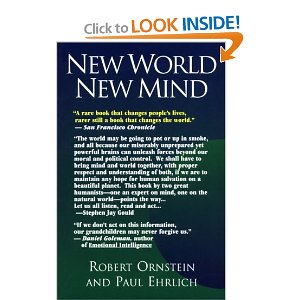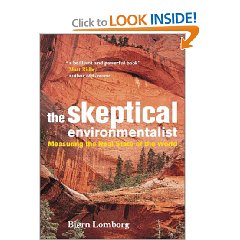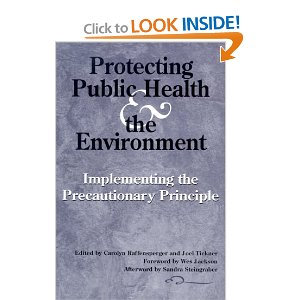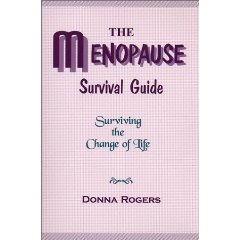Review: Menopause for Dummies [ILLUSTRATED] (Paperback)
4 Star, Nature, Diet, Memetics, DesignReview: Your Perfectly Pampered Menopause–Health, Beauty, and Lifestyle Advice for the Best Years of Your Life (Paperback)
4 Star, Nature, Diet, Memetics, DesignReview: New World New Mind–Moving Toward Conscious Evolution
5 Star, America (Founders, Current Situation), Best Practices in Management, Change & Innovation, Civil Society, Complexity & Resilience, Consciousness & Social IQ, Culture, Research, Democracy, Education (General), Education (Universities), Environment (Solutions), Future, Intelligence (Collective & Quantum), Intelligence (Public), Nature, Diet, Memetics, Design, Philosophy, Priorities, Survival & Sustainment, Technology (Bio-Mimicry, Clean), Truth & Reconciliation, Values, Ethics, Sustainable Evolution, Voices Lost (Indigenous, Gender, Poor, Marginalized), Water, Energy, Oil, Scarcity
5.0 out of 5 stars From 1989, Not Updated, Superb Never-the-Less
April 28, 2005
Robert E. Ornstein, Paul Ehrlich
EDIT 20 Dec 07 to add links.
This superb book was published in 1989 and is being reissued, and I am very glad it has come out again. I bought it because it was recommended by Tom Atlee, seer of the Co-Intelligence Institute, and I found it very worthwhile.
As I reflect on the book, I appreciate two key points from the book:
1) The evolution of our brains and our ability to sense cataclysmic change that takes place over long periods of time is simply not going fast enough–the only thing that can make a difference is accelerated cultural evolution, which I find quite fascinating, because cultural evolution as the authors describe it harkens to noosphere, World Brain, co-intelligence, and what the Swedes are calling M4 IS: multinational, multiagency, multidisciplinary, multidomain information sharing–what I think of as Open Source Intelligence–personal, public, & political.
2) One of the more compelling points the authors make is that not only are politicians being elected and rewarded on the basis of short-term decisions that are by many measures intellectually, morally, and financially corrupt, but the so-called knowledge workers–the scientists, engineers, and others who should be “blowing the whistle,” are so specialized that there is a real lack of integrative knowledge. I realized toward the end of the book, page 248 exactly, that Knowledge Integration & Information Sharing must become the new norm.
This is a tremendous book that is loaded with gems of insight. I have it heavily marked up. Although it integrates and reminds me of ideas ably explored in other books, such as Health of Nations, Cultural Creatives, Clock of the Long Now, ATTENTION, Limits to Growth, and Forbidden Knowledge, these two authors have integrated their “brief” in a very readable way–as one person says on the book jacket, they effectively weave together many strands of knowledge.
The annotated bibliography is quite good, and causes me to be disappointed that the publishers did not provide for the updating of the bibliography–the ideas being blended are timeless and need no update.
Two notes toward the end were quite interesting. They speculate that Japan may be the first modern nation to collapse, if it is subject to disruption of the global trade and transportation system. They also have high praise for Global 2000, an integrative work whose predictions for the 2000 period (written in the 1970's, I believe) are turning out to be quite accurate.
Finally, woven throughout the book, is the simple fact that we are now burning up our savings–consuming the Earth at a much faster rate than it can replenish itself. We are very much out of harmony with our sustaining environment, and at grave risk of self-destruction. Interestingly, they remind of the Durants last word in “The Lessons of History:” that the only revolution, the only sustainable revolution, is that which takes place in the human mind. As these authors would have it, if we do not develop a new collective mind capable of integrating, understanding, and acting sensible, for the long term, on what we can know as a collective mind, then our grandchildren will become prey for the cockroaches of the future.
At a time when the new Director of National Intelligence (DNI), Ambassador Negroponte, is seriously contemplating the establishment of a national Open Source (Information) Agency as recommended by the 9-11 Commission, to get a grip on all the historical and current knowledge, both scientific and social, that we have lost touch with, I can think of just three books I would recommend to the DNI as a foundation for his reflections: this one, Buckman's “Creating a Knowledge Driven Organization,” and Wheatley's “Leadership and the New Science.” I would end his tutorial, or perhaps inspire it, by screening Tom Atlee's video, “From Group Magic to a Wise Democracy.”
Strangely, for I tend to be very gloomy about our prospects these days, I find that this book has cheered me somewhat. I sense the possibility of a break-out through a combination of wise information acquisition and sharing policies, and the application of the new technologies that L-3, CISCO, and IBM, among others, are bringing out, technologies that put intelligence on the edge of the network, and permit the creation of infinitely scalable and shareable synthetic information exactly suited to any need at any level.
There *is* an answer to all that ails us, and these two authors discuss it in a very capable manner.
See also, with reviews:
Integral Consciousness and the Future of Evolution
The Tao of Democracy: Using Co-Intelligence to Create a World That Works for All
The Cultural Creatives: How 50 Million People Are Changing the World
Group Genius: The Creative Power of Collaboration
The Wealth of Networks: How Social Production Transforms Markets and Freedom
Global Brain: The Evolution of Mass Mind from the Big Bang to the 21st Century
World brain
Leadership and the New Science: Discovering Order in a Chaotic World
The World Cafe: Shaping Our Futures Through Conversations That Matter
THE SMART NATION ACT: Public Intelligence in the Public Interest
Review: Environment, Scarcity, and Violence.
4 Star, Complexity & Catastrophe, Culture, Research, Environment (Problems), History, Justice (Failure, Reform), Nature, Diet, Memetics, Design, Peace, Poverty, & Middle Class, Survival & SustainmentHis book is effective in making the point, but very candidly, did not go the full distance that I was hoping for–he is, in a word, too general and the book lacks a single chapter that pulls it all together with very specific rankings of both the variables and the countries.
The general proposition is clear-cut: environmental scarcity has social effects that lead to violent conflict. However, the author takes a side road in exploring “human ingenuity” as an ameliorating factor, and while he makes reference to crass corporate and elitist carpet-bagging and the social structures of repression, he fails to draw out more fully and explicitly the inherent association between repressive corrupt regimes with extreme concentrations of wealth and power, scarcity, and violence.
For myself, I found two gems within this book: the first, a passing comment on the crucial role that unfettered urbanization plays in exacerbating scarcity and all that comes with it (migration, disease, crime); the second, the author's prescriptive emphasis, extremely importance, on the prevention of scarcity rather than adaptation or amelioration of scarcity.
The endnotes would have been more useful as footnotes but are quite good. The bibliography and index are four star rather than five star, and I was quite disappointed to not have a single page about the author, nor a consolidated bibliography of his many signal contribution over time in the form of articles and lectures.

Review: The Skeptical Environmentalist–Measuring the Real State of the World
5 Star, Environment (Problems), Environment (Solutions), Misinformation & Propaganda, Nature, Diet, Memetics, Design
Bjorn Lomborg
UPDATED 6 Oct 09 to upgrade to five stars and add links that comprise an apology of sorts. The more I read the less I know, and the more I appreciate the absolute essentiality of getting all points of view face to face before a citizen's wisdom council. New links that complement this book:
The Resilient Earth: Science, Global Warming and the Fate of Humanity
Acts of God: The Unnatural History of Natural Disaster in America
The Next Catastrophe: Reducing Our Vulnerabilities to Natural, Industrial, and Terrorist Disasters
Eco-Imperialism: Green Power, Black Death
The Real Environmental Crisis: Why Poverty, Not Affluence, Is the Environment's Number One Enemy
At root, Lomborg is a disciple and blind follower of the paradigm best articulated by Julian Simon, who has himself been discredited here and there by well-educated environmentalists. Lomborg's professionalism and devotion to data are not questioned here–one either shares his paradigm or one does not. It merits comment that there are now several web sites, one of them in Denmark founded by his own colleagues, dedicated to exposing the flawed assumptions and analysis that went into this corporately attractive politically-biased treatise.
This is indeed a brilliant and powerful book, just as a nuclear explosion is brilliant and powerful–and very destructive. However well-intentioned–and I do not question, even applaud, the author's intentions, what we have here is a rather scary combination of fragmentary analysis in depth, combined with a strong belief system that accepts as a starting point the concept that the earth is infinitely renewable and no matter what happens, that is a “natural” turn of events.
…
Just as 9-11 was necessary before a paradigm shift in national security concepts could be achieved (now we know that individuals without weapons can turn our own civilian instruments against us in really damaging ways), I fear that a major environmental–perhaps even a terrorist-environmental event, such as exploding train cars full of chlorine, will be required before citizens as a whole experience the paradigm shift and understand that a) we live in the closed system and b) the burden of proof must be precautionary rather than exploitative.
We are soiling our seed corn and the earth it grows in. Lomborg would have us believe that what we grow within such a paradigm is natural and good–no doubt he has an explanation for the dramatic drops in sperm counts around the world, the troubling increases in asthma across Canada and the East Coast and other nations reeling from antiquated coal-fueled power plants (most of them in the mid-West), and other documented demographic costs to uncontrolled liquidation of the earth.
I will end with one very significant concession to Lomborg and his adherents: this book, compelling in isolation, makes it clear that nothing less than the full application of the distributed intelligence of the citizenry on a 24/7 basis, will be sufficient to monitor, evaluate, and comprehend the breadth and depth of our attacks on the earth. It is now clear to me that until we have a global web-based community of citizen observers able to enter data at the neighborhood level, using peer-to-peer computing power to analyze distributed data, that the citizens will continue to be at the mercy of corporate computers and political manipulation.
I strongly recommend this book, and Czech's book, as companion volumes framing a much higher level of data and debate that is now beginning.

Review: Protecting Public Health and the Environment–Implementing The Precautionary Principle
4 Star, Best Practices in Management, Complexity & Catastrophe, Complexity & Resilience, Environment (Problems), Environment (Solutions), Nature, Diet, Memetics, Design, Science & Politics of Science, Survival & Sustainment, Values, Ethics, Sustainable Evolution
4.0 out of 5 stars On Target but Fragmented–Needs New Edition with Summary
June 2, 2001
Carolyn Raffensperger (Editor), Joel Tickner (Editor), Wes Jackson (Foreword)
This is the second best of several books on environmental policy I have reviewed, and it merits careful scrutiny in part because it brings together a number of expert authors and there is in essence “something for everyone” in this edited work. What is lacks, though, is a good summary chapter that lists how the “precautionary principle” should be applied across each of the top ten environmental areas of concern–something that could circulate more easily than the book, and perhaps have a beneficial policy impact at the local, state, and national levels–and I suggest this because the meat of the book is good, it needs an executive summary.
The chapter that was most meaningful to me, the one that I think needs to be migrated into business education, international affairs education, science & technology policy education, is by Gordon K. Durnil, Chapter 16, and it deal with “How Much Information Do We Need Before Exercising Precaution.” This is a brilliant piece of work that dissects our current environmental policy information collection, processing, and analysis system, and finds it very deceptive, disingenuous, and consequently seriously flawed.
For the best on the environment, read Pandora's Poison. For the best on public health, read Betrayal of Trust. For a very fine cross-over book that has good chapters from various good people, this is the book to buy and enjoy.






